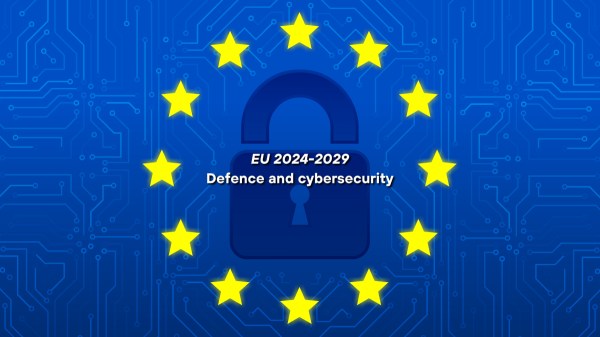Even for veterans of policy making, this week provided an unusual surprise: The President of the United States of America, President Barack Obama, announced the intentions of his government to preserve the Open Internet by asking the FCC, the independent regulator for communication, to implement the strongest possible rules to protect Net Neutrality by reclassifying it as a consumer broadband service under Title II of the Telecommunications Act.
FCC´s chairman Tom Wheeler responded swiftly, stating his support for an Open Internet but also pointing out the obvious: that such a regulation is a complex regulatory issue that needs to be done carefully to get “the job done correctly”.
We would agree. Telefonica has followed for a while the discussions on Net Neutrality in the United States, but we were nevertheless, as many others observers, surprised by this statement of the White House. As we have laid out already in September in our input to the FCC’s consultation process on the Open Internet (see our post here),the US approach to Net Neutrality will impact other national debates, because these are likely to be influenced by any decision taken in the US, where important parts of what is known today as Internet originated and the globally dominating Internet companies and services stem from.
We also have been very clear on our position right from the start of that debate: Telefonica supports the Open Internet and we believe that preserving it is a vital and shared interest for our societies and economies. We fully share President Obama’s objective of keeping the Internet open, which means that no one should be able to abuse its dominance and no restrictions of consumers’ choice should exist through blocking, throttling or limiting access to content, applications or services customers want to access.
However, we believe that President Obama did not take into account what the chairman of the FCC knows after looking at millions of inputs over the last months: Things are not that easy. The world unfortunately can not be divided as easily in the good and the bad, in black and white.
We consider that the proposed way of imposing heavy-handed, old-fashioned telecommunication regulation on the Internet is simply wrong and in fact may lead to undesired results on innovation and investments, to the detriment of consumers and economies. Telecommunication regulation from the last century is not what we need in the 21st century for a fast-changing and innovative digital economy.
Let me explain in more depth what I mean by that: Internet has successfully developed to the vibrant ecosystem we know today thanks to the permission-less innovation it has allowed through a light-touch regulatory approach. This framework has proven to be the best way to tackle its development so far and there is no reason to believe this should not continue to be the case. This approach has worked considerable well: Who has already witnessed the massive abuse of ISPs acting together as gatekeepers and picking the winners and successful Internet services of the future?
Market behaviors show that the contrary is true. Over the last years, while we have been discussing potential Net Neutrality regulation in the USA, Europe and other jurisdictions, WhatsApp – a service that directly cannibalized traditional revenues of mobile operators from SMS- has grown to more than 600 million users world-wide and has just been sold for US$ 19Bn to Facebook. How would that great success have been possible if operators would have had such an appetite to block Internet services?
It simple did not happen and instead using new infrastructure and better connectivity, Internet services have been able to grow exponentially and disrupt traditional markets from media to communication and even taxi businesses. Why should that trend not continue in the future? As Jean Tirole, this year´s Nobel Prize Winner for Economics, has rightly pointed out, good and successful regulation is built on a consensus about the existence of a clearly identified and sizeable market failure.
For any forward-looking, good policymaking, the guiding question should therefore rather be where such market failures exist on the Internet and how to avoid any abuse of dominance. In Europe, this is the question that is currently quickly shooting up the political agenda with diverse calls for “platform neutrality”, “search neutrality” or simply “digital neutrality” (see for example the report by the French Digital Council CNNum here). It is surprising to see that this question seems not to worry the US President when he defends the Open Internet.
Taking the road of regulation, as he proposes, will also have negative consequences on innovation and investments. As the Trans-Atlantic Business Council (TABC), a cross-sectorial group of companies from all parts of the Internet Value Chain from the USA and Europe, has pointed out recently in a joint statement: The Open Internet and related broadband services are the cornerstones that facilitate the acceleration of economic growth, increase societal benefits and stimulate job creation.
Any new policies under consideration should guard against practices that harm competition or consumers, but must allow service providers flexibility for differentiated and innovative solutions and business models. In other words: There is also a right for ISPs and broadband providers to innovate, agree new cooperations and business models as long as they are not anti-competitive or harm consumers. This sounds obvious, but is exactly what President Obama is denying when he wants to regulate how business models should look like: Explicitly prohibiting paid prioritization might be the reason why a new, innovative eHealth start-up or the self-driving car cannot get the higher quality of service they require – is that really what we want?
As said, the digital world cannot be divided easily in good and bad and it is poor policymaking to try to pick winners and losers and dictate business models by over-prescriptive regulation. Policy makers should rather acknowledge that innovation should be able to take place everywhere, also regarding Internet access, as long as consumers have a transparent and real choice amongst different offers. There is no need to believe that a vibrant, competitive Internet access market needs to be regulated like a 20th century utility. On the contrary, what we see already starting to take off is the so-called Internet of Things realized by Machine-to-Machine communication and always-on technologies that will need modern, intelligent and constantly managed networks – or such innovations of health, education and other services might never happen.
We agree that, digital broadband infrastructures should reach everyone, but they are therefore not traditional utilities like water or gas. Imposing over-intrusive regulation will take its toll on innovation and harm consumer´s choice. For some inspiration on what might constitute better approaches the US government could look abroad: Some Scandinavian countries and this month also Switzerland have decided to install a much more flexible and modern approach to safeguard an Open Internet and Net Neutrality by agreeing Code of Conducts with the ISP industry, which include independent parties and ombudsmen and round-tables for dispute resolutions in cases of conflicts.
Such multistakeholder approaches fit much better the nature of the Internet than heavy-handed, command-and-control regulation. In that sense, it is also worrying to see that the US government seems to be preaching water and drinking wine regarding their views on Regulation of the Internet. What it does at home could soon not be aligned anymore with their international positions on Internet Governance. In the past, Telefonica has supported many views that the US government was advocating for on international level, especially that the Internet should not be regulated due to its dynamic nature and rather be governed by distributed bottom-up, multistakeholder processes. Now, it seems that the US government has changed its view and believes that in fact some very traditional telecommunication regulation needs to be applied to the Internet.
What will that mean for international policymaking? What would the USA be able to argue in the future when (not if) some members of the ITU, the UN body responsible for telecommunication, will ask for an expanded mandate of the ITU for Internet policies? Any rushed move on regulating the Internet should also take into account the impact on global Internet Governance and consider the potential damage to the interest of the US digital economy and its global exports of digital service and contents, already the third-largest export sector of the USA. After the recent Snowden revelations, this might constitute another harsh blow in just over a year for the credibility of the US administration regarding Internet Governance at international level.
Chairman Wheeler is therefore right: Net Neutrality is a complex issue which needs thorough consideration, taking into account all views and interests. There is too much at stake for our societies and economies to get it wrong. The Internet as we know it today has grown without much help of policymakers and heavy-handed regulation, but based on competition, consumer choice, innovation and private investments.
Why should we change that, Mr. President?












